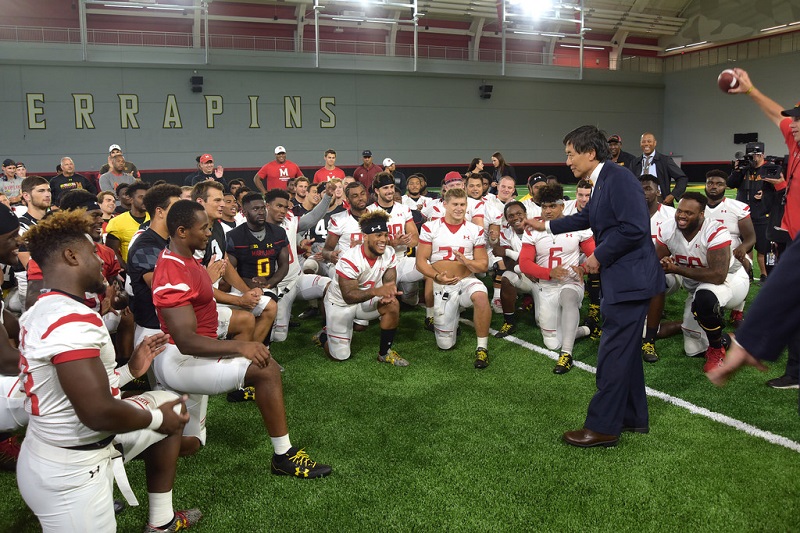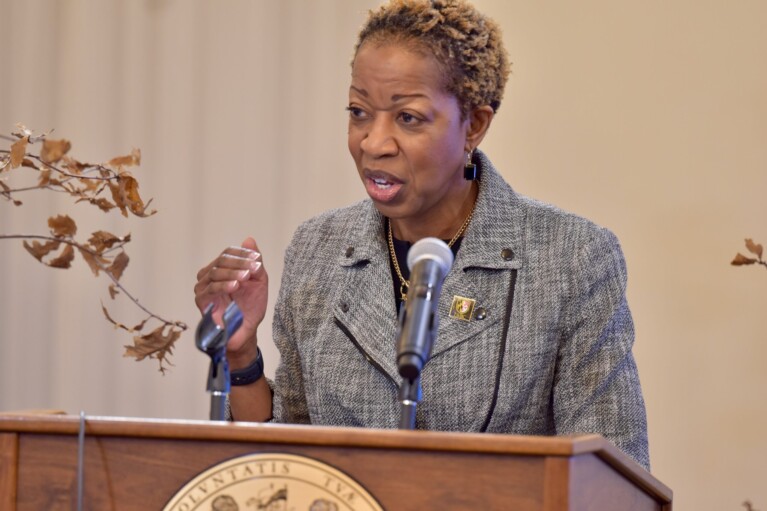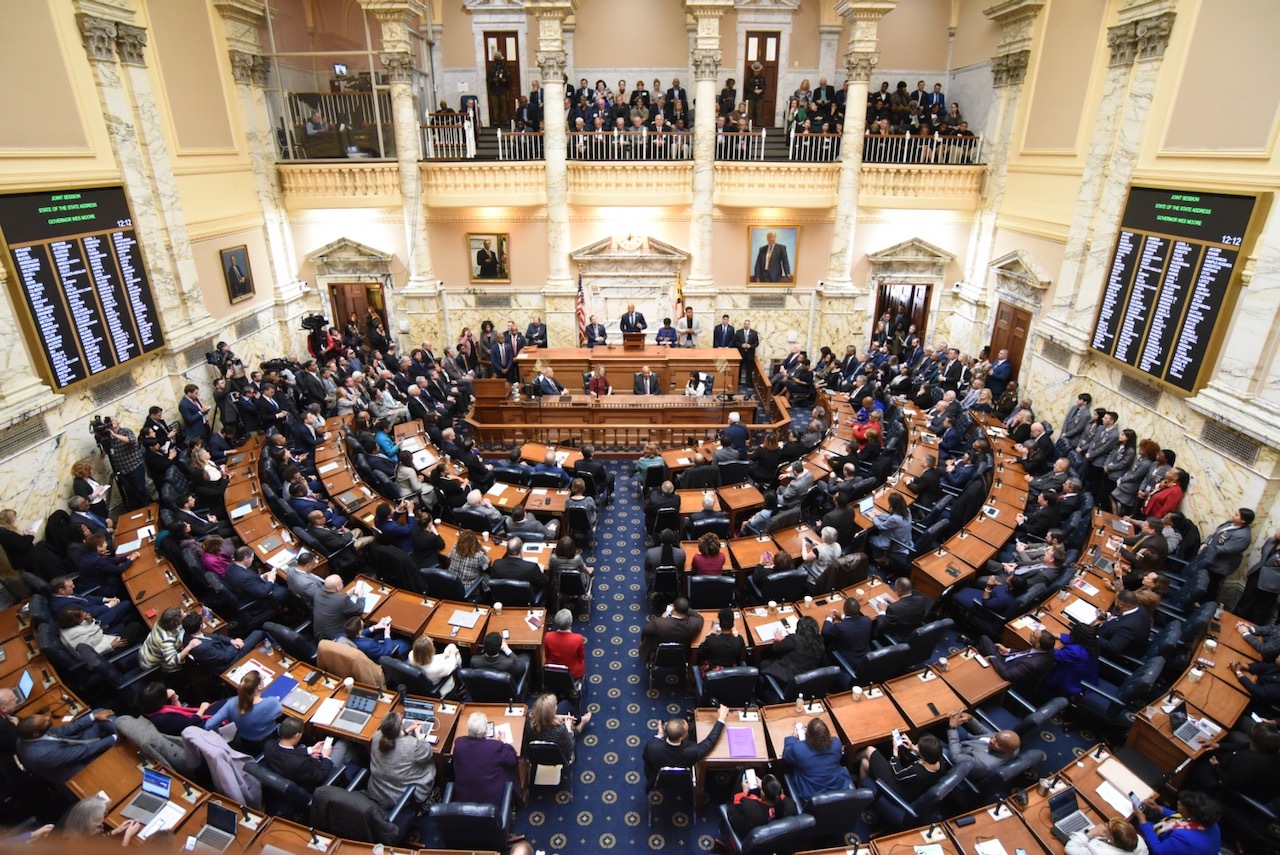Delegate Wants Collective Bargaining Rights for Student-Athletes

Student-athletes at public universities in Maryland would gain collective bargaining rights under a measure up for debate in the General Assembly later this month.
Del. Brooke E. Lierman (D-Baltimore City) said she crafted the legislation in consultation with students following the death of University of Maryland football player Jordan McNair, the gymnastics team sex abuse scandal at Michigan State University and other instances of failure by college athletic departments.
The measure — House Bill 0548 — would not mandate pay for student-athletes, a subject of heated debate in college sports, but it would provide an opportunity for athletes to have outside representation in their dealings with coaches and athletic directors.
“I think we have a duty as lawmakers to protect our public school students, and that includes our college students, too,” Lierman said. “And we need to do a better job.”
Her bill, which has 18 co-sponsors, would “try to correct the imbalance of power that exists between our college student-athletes and our university systems. … One of the ways we can do that is to make sure that our college student-athletes have the ability to organize and to have an advocate with them, representing them,” she said.
Lierman said there are several areas where athletes could benefit from representation:
- In instances where players are discouraged from taking high-level courses that would take them away from practice.
- Obtaining post-college health coverage for the treatment of injuries sustained during a player’s career.
- Compensation for a university or the NCAA’s use of a players image and likeness in video games and jersey sales.
- The ability to raise health and safety concerns without fear of retribution or retaliation.

Del. Brooke E. Lierman (D-Baltimore City)
“I think it’s time for colleges and universities to start standing up to the NCAA to say what’s acceptable in how their students are being treated,” the lawmaker, a former member of the Dartmouth rowing team, said.
While Lierman’s bill would not require Maryland schools to pay their players, her bill could hasten the day when that occurs.
“Once players get certain bargaining rights, they’re going to start asking for money,” said Tom Threlkeld, a Maryland attorney and the founder of two sports blogs. “I think everyone understands that.”
“That’s why universities have been so dead set against this,” he said.
Ramogi Huma, executive director of the National College Players Association, said no other state has adopted such a law, so advocates are watching the Maryland General Assembly closely.
“College athletes deserve an equal seat at the table when it comes to matters of physical, academic, and financial protections,” Huma said.
Patrick Hogan, head of government relations for the University System of Maryland, refused to take a position on Lierman’s bill, which is scheduled for a hearing before the House Appropriations Committee on Feb. 26.
“The USM is still developing our testimony on this bill by collecting information from our institutions and the NCAA, but we might have some concerns we will share with Delegate Lierman and the committee,” he wrote in an email.
Threlkeld said that, in the wake of McNair’s death in June 2018, the school will need to tread carefully in how it responds to Lierman’s proposal.
“I would be shocked if the universities don’t try to fight this sort of thing, but in the case of Maryland they have to be very, very careful. Because there is a young man who died and no one has offered a good reason for his death,” Threlkeld said.
Lierman’s bill has the unanimous support of the Student Government Association at the University of Maryland College Park, said SGA President Jonathan Allen.
“It’s time that we start a conversation on what the fair treatment of college athletes looks like,” said Allen, who is an intern for Del. Eric G. Luedtke (D-Montgomery).
“Collegiate athletics has become a multibillion dollar industry built on the work of these college athletes,” he added. “Clearly, they are getting the short end of the stick.”




 Creative Commons Attribution
Creative Commons Attribution